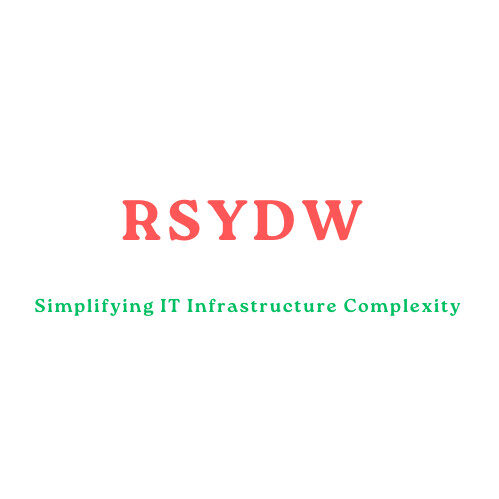|
Getting your Trinity Audio player ready...
|

Table of Contents
What is a Unix Linux System Administrator?
Well, it is not very easy to decide exactly what is the exact roles and responsibility of a Linux System Administrator.
This is not to scare but it is almost unlimited. We are going to discuss this in detail in this post.
So in general terms, we can say professional who take cares of servers which are running on any Linux based distros.
For instance, it could be Fedora, Kali Linux, Ubuntu, Red Hat, or any other Linux distros.
Linux environment may be based on physical servers may be from Dell or HP or it may be based on a VMware environment or it could be based on cloud platforms like Azure, AWS, Google Cloud, or any other cloud-based platform.
It is not only about Linux they have to manage all other Linux or BSD4 UNIX based operating system if present in the organization.
For example, major operating systems on the global level and enterprise-level are Solaris, HP-UX, AIX, SuSe.
As all are aware that Linux is derived from UNIX only so a professional who takes care of all UNIX Linux operating system environment in the organization and all related stuff to make sure all the applications in the organization run smoothly to achieve the ultimate goal of the business.
Linux System Administrator Roles and Responsibilities
As I said earlier it is not limited and it may vary based on the organization. I will share a few main roles and responsibilities of the Linux System Administrator. So let us start making this list sequential.
Let us review 25+ skills every Linux System Administrator should have.
25+ skills Every Linux System Administrator Should Have
1. Daily Health Check validation and fix
After logging at work Linux System Administrator may need to review daily health report of all UNIX Linux Servers if any automation is configured in the organization which performs daily health check.
Reviews these reports and fix the issues if any reported like high CPU alerts, High Memory alerts or any file System Full Alerts or Any Inode full alerts. In short Daily Health Check validation and fix.
2. CMDB Updates
Linux System Administrators use to have access to CMDB of Organization to conduct their routine duties.
This tool has all the details of hardware, location, the application associated, and primary/secondary contacts like all the information about the particular server.
3. Incident Management
Need to perform all break-fix for all UNIX Linux servers in the organization of all kinds. For example Service Now or any other tools available in the organization for Incident Management.
Resources for Linux SA
How to install Python3 on LINUX What are Inodes in Linux How to fix the failover service group in VCS How to check DG size in Veritas File System How to remove files and directory on Linux and UNIX
4. Problem Management
Unix Linux System Administrator always needs to perform root cause analysis popularly known as RCA. You may get help from external vendors for RCA like Redhat, Veritas, Oracle, VMware, Microsoft based on your organization contracts with external vendors.
5. Performance Management
Well, this is having too much importance for a UNIX Linux server administrator. You must need to have a good familiarity with UNIX Linux tools provided by operating systems to chart out any real issues with the system to decide what path to take.
You will have seniors, management, and vendor support for the same but you have to do the initial investigation.
This is too often but not always. This itself is too broad to discuss in one post.
6. Request Fulfilment
Based on your organization you must be having some kind of internal or external request fulfillment system via which all your users must be requesting if they want something to be set up.
For example, new file system creation, existing file system expansion, existing file system reduction, new kernel parameter implementation as per application requirement, dynamic resource addition in case of virtual environments like LDOM or VM, New Package Installation and Removal or update, and many others like user management stuff or SUDO permission grant again this is unlimited.
7. Change Control Management
Most of the enterprise clients especially united states and united kingdom clients or any other clients as well will schedule all their changes in infrastructure during their business off days.
Unix Linux System Administrators always needs to perform change control of actual implementations.
8. Vendor Co-ordination
As I said above you need to be ready to have too much vendor co-ordinations too often for any reason like troubleshooting, RCA finding with multiple vendors like Redhat or any other for OS support like Oracle for Solaris, Veritas if you are using Veritas Cluster or Veritas Volume Manager or Netbackup for backing up your data, VMware for ESX related issues, Microsoft or AWS if you are using any other cloud infrastructure services provider
More Resources for Linux SA
How to change DG name in the Veritas Volume Manager How to check disk size in VxVM How to Check Linux Version How to unencapsulated the root disk in VxVM Azure CLI - Installation and Uses What are Inodes in Linux
9. Server Provisioning
Especially in the case of Remote Unix Linux System Administrators, your organization must be having hardware support on the data center level. You need to coordinate to set up the server in the rack and get the required power and network provisioned.
Physical/On-Prem Linux Server Build
Once set up you need to create a Kickstart profile in case of physical Linux server build and then build the servers as per the build sheet provided and configure those as per requirement.
There might be some specific organization based customization like naming convention or any specific package or etc. You must be having the Kickstart environment configured is understanding.
VMware based Linux Virtual Machine Build
In the case of virtual Linux server build you must be having templates available and you will have a better idea of which Cluster you have to build a new virtual machine keeping the name standard as I mentioned above and configuring them as per business need or you can say build sheet provided.
In general Linux, Systems administrators need to follow organizational standards either already available or need to setup.
Cloud-Based Virtual Machine Build
Again Linux system administrators must be having some standard on how to build Linux virtual machines in the cloud infrastructure environment in their department. Either through the console or via scripts again it must vary from organization to organization.
10. Server De-Provisioning
This is as usual if servers are provisioned they must be de-provisioned at some point in time due to many reasons either business needs end or saving cost or hardware end of life or operating system end of service or could be anything.
The procedure is almost exactly in reverse order of server provisioning. Your department must be having a checklist of what to do for de-provisioning any server either physical, virtual, or cloud-based.
Especially for cloud-based Linux virtual machine servers, your organization may have strict guidelines because many of them are as PAYG configuration I mean Pay as You Go.
Everything is billed by the vendor even it is off it gets billed for storage. You need to have a fair idea about the urgency of decommissioning.
In the case of physical or virtual, it may not have that much impact. In case of physical server any delay you might be only paying electricity charges and in case of Linux virtual machine in VMware that is too less because it is on shared infrastructure even you decommission virtual machine other will still stay in DC.
11. Server Monitoring
Server monitoring for resources and availability is really the most important aspect for all organizations. Nowadays most organizations have separate monitoring departments that setup integration monitoring with ticketing tools for incident management, problem management, and performance monitoring for smooth functionality of the server to conduct business.
For instance, as part of pro-active monitoring, they set thresholds to alarm and incident gets created for example if any file system reaches 90% utilization it creates an alert so that it can be addressed before any unusual happenings like data writing issues and escalations also set to whom to alert based on ownership of file system.
For example, in the case of Linux servers, Linux Server Administrator may need to address root boot /var /var/log, etc file system which related to server and rest belongs to either database or application team whoever use that file system.
The whole meaning here is that you need to make sure all the Unix Linux Servers must get monitored either via coordinating or whatever step needed to make sure it is getting monitored.
12. Server Backup
Again this is the same as monitoring you may be having a separate department for backup management but many tasks you may need to perform like restores on-demand and agent installation.
So this is really important to save your ace to make sure all the UNIX and Linux servers must get covered in the backup.
There are two categories of backup like OS-related backup and Application related backup. You need to have an agreement with application owners they need backup or not.
If not it can be maintained as an exception so later they can not claim any restore etc. You or your manager have to decide about OS backup.
Again this is really important to make sure this is addressed to avoid any future escalations or failure to deliver business need. They will have two options either it is getting backed up or getting maintained as an exception.

12. ITIL Certification/Awareness
So based on the above Unix Linux System Administrator must need to have either certification of ITIL or at least have a fair idea about ITIL. and have much understanding of service delivery and SLA etc.
13. Continual Process Improvement
As I said due to the almost unlimited scope for Unix Linux System administrators they always need to focus to have standard operating procedures developed for smooth and error-free implementations.
Always need to follow best practices for quality delivery.
14. Automation Focused
Well, this is too much important to have the mindset to automate things that are repetitive in nature. It will not only save your time and effort this will also eliminate any human error and increase the accuracy of delivery each time. This will boost quality delivery.
Again this is too broad but at a minimum level at least you must need awareness about shell or bash scriptings and for loops executions or even many other automation tools like Ansible etc or bulk deployments.
15. Compliance Management System Knowledge
You may have an idea about compliance which all the UNIX and Linux server needs to maintain.
This standard is set by organization security teams. For example, telnet and FTP must be disabled as they are not secure or use of MD5 hash algorithm, etc.
I can recall two systems as of now there might be many. Tideway from BMC which was previously hugely known for BMC Patrol for monitoring and Bigfix from IBM I guess it is maintained by HCL as of now please excuse if any change in that.
What these software systems do is match the organization standard configurations with the configuration in servers and if any difference it will report and you need to work with respective teams and fix if possible or maintain those as exceptions with business justifications etc.
16. Audit Report Support
Auditing is mandatory and has too much importance for each and every organization. So whenever auditors come to the organization they may ask for any report from management and it will obviously come to SA for execution and provide the report for auditing.
They may come with a surprise as they have to scrutinize each and everything. You must be ready to provide reports well on time to avoid any management level escalations as this is too important for the organization.
17. Regular OS Patch/Security Patch Implementation
From time to time all operating system vendors’ so-called OEM releases OS and Security patches which must be applied. These are continuous deployments as soon as new patches deployments.
You must be having tools already set up in the environment like yum for RedHat or any other patch deployment tools you may have for various operating system vendors.
You can use these patching deployment schedule to upgrade all the hardware related patches as well like BIOS versions and Drivers update.
These are applicable for physical Virtual and even Cloud-based Linux Virtual Machines as all IAS platform provides Infrastructure only and you need to maintain latest patches and security.
18. Storage Technology Awareness
Linux System Administrator must need to have an idea about various storage technologies like DAS, SAN, NAS, and HBA. Direct Attached Storage, Network Attached Storage, Storage Area Network is the various storage technologies SA must need to be aware of.
SA needs to have an idea about the Host Bus Adapter used for ever-growing storage demand.
Most of the time SA have to perform most of the task except storage allocation.
Like SA needs to request storage with Storage Team so he needs to have an idea of How to find WWN in Linux so he can provide details to storage tea before they allocate a new disk.
Once the disk is allocated SA needs to scan on a host and configure it as per requirement I mean either create the new file system or expand the existing file system or reclaiming existing storage to save cost on business need.
To save the cost of storage refresh is happening from time to time it may be daunting and you may need to work with the storage team closely.
I mean to say most of the storage-related tasks supposed to be performed by the Linux Server Administrator even though all credit goes to the storage team for saving cost to the organization but with no option, SA has to support.
19. Networking Awareness
You need to be well aware of networking technologies as well. You need to have a fair idea about all networking related commands in Linux or any other OS.
You may need to test connectivity test performance as part of troubleshooting
You need to have a clear concept of IP Address Gateway Netmask. You can refer to the below link to know Useful Linux Networking Commands to have a fair idea.
20. Linux User Management
All UNIX Linux user who needs access to UNIX Linux servers it must be addressed by Unix Linux SA Team. Methods of user management may differ from organization to organization.
It might be local user management or it may be AD based used management or it may be NIS based user management or it may be LDAP based user management.
I mean technology may differ but the task is assigned to the UNIX Linux team only.
Please refer to Important Linux Commands if interested.
21. Privilege Access Management
This task is also assigned especially to Unix Linux Teams only. This is famously called SUDO privilege on specific servers.
Again methods of maintaining sudoers may differ from organization to organization.
22. Samba Shares Management
Configuring samba to give Linux file system access to Windows environment you may often need to configure.
23. Cloud Environment Awareness
As I mentioned in server provisioning Linux Server administrators have to build and decommission Linux VM in any cloud-based infrastructure.
For instance, Azure, AWS, Google Cloud, or any other Cloud Services providers he needs to do the troubleshooting for the cloud environment.
So Linux SA either needs to certify himself in any one or more than once based on the requirement is almost mandatory.
Many organizations push for cloud certifications and some of them also provide financial support for it in form of training.
Interested Articles to Read More
How to fix the failover service group in VCS How to check disk size in VxVM How to check DG size in Veritas File System How to change DG name in the Veritas Volume Manager Azure CLI - Installation and Uses
24. Interviewing Skills
Very often in your project with either new requirements or filling any vacant position you may need to conduct interviews for new team members.
So you need to have good analytical interviewing skills to have better team members in the team keeping team goals in mind. For that, you yourself need to develop good interviewing skills.
25. Training Skills
Once you have a new team member in the team you need to train them efficiently about technical stuff plus policy and procedure available in the department.
Giving a good idea about team goal and his roles and responsibilities going forward. So you need to have a better idea about the project and need to develop good training skills as well to effective knowledge transfer.
26. Readiness for 24×7 Support
Based on their engagement and business requirement Linux SA must-have mindset to work 24x7x365.
27. Adaptability
Linux System must need to have an adaptive kind of mindset and be always ready to adopt and ready to learn new technologies as soon as it comes to keep himself updated with the latest technologies and always maintain relevancy.
28. Standard Production Support delivery Principles
There are some common guidelines Linux Servers Administrator need to follow for smooth error-free implementations. Please refer here for Standard Production Support Delivery Principles for more details.
29. Thankless Job
Even though Linux System Administrator Role is really key for organizations as they are key elements between organizations and clients it has been sough very much thankless job practically.
Linux SA being a key position in the organization and being the first point of contact -FPOC for every other team in the organization often their credit is overlooked in most of the organization.
As per my understanding, this is due to heavy engagement in projects not getting enough time for office politics, and even miss to represent themself at the required level.
30. System Admin Day
Do you know on 30 July System Admin Day is celebrated?. They more often get hit back as they are always at the doer’s end.100 good work gets vanished by one bad. People used to keep track of only 1 bad over hundreds or even thousands of good work.
You can thank them on this day for their consistent hard work and dedication to keep your organization meeting all Information Technology needs to conduct business smoothly running without hiccups.
Linux System Administrator Job Description
As stated above it varies from organization to organization based on their Infrastructure.
Let me share one recent job description below just for better understanding. Below is the sample job posted recently taken from google just for reference no other association.
================================================================================
Online Linux System Administrator
Educational Qualifications for Linux System Administrator
I have tried to summarise all about linux system administrator roles and responsibilities which I recall at the time of writing. You may suggest if I missed any in Linux System Administrator Roles and Responsibility in form of a comment. Will be glad to add to the list in the next update.
Linux SA Resources… Read More
Veritas Netbackup 8.1 Client Installation How to Restore Private Region in Veritas Volume Manager




Comments
Excellent, Well described. Keep it up.